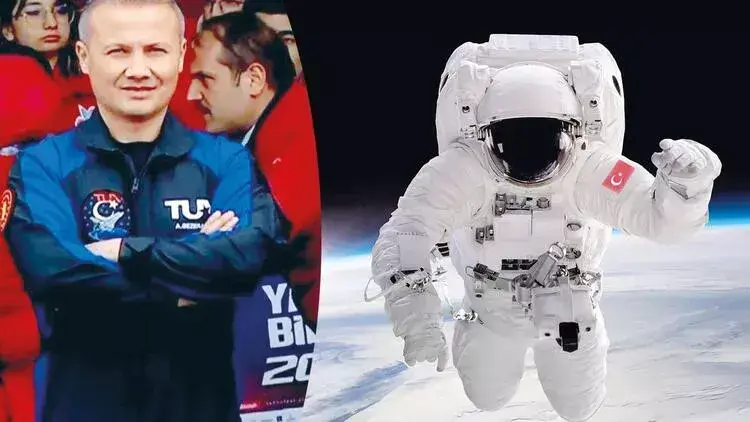
Within the scope of the ALGALSPACE project, Alper Gezeravcı, Türkiye’s first space traveler, will test the algae taken from Antarctica into space to provide additional food.
Recently, TÜBİTAK Space called for a “Science Mission” to determine the experiments to be carried out by Turkish space travelers during their first mission. Many universities and research institutions applied with their projects. Among them, 13 projects were selected.
The ALGALSPACE project, for which Prof. Dr. Didem Balkanlı Özçimen, a faculty member at the Bioengineering Department of Yıldız Technical University (YTÜ), the project manager, was one of the missions of the space travelers.
With the project, microalgae (single-celled algae) collected and isolated from Türkiye’s station in Antarctica will be tested in space for the first time. The data to be obtained at the end of the study will also contribute to the technologies to be developed in future space missions.
The experiment will be carried out by Alper Gezeravcı, an F-16 pilot in the Turkish Air Force, who graduated from the Air Force Academy as an electronics engineer and later earned a master’s degree in operations research at the U.S. Air Force Institute of Technology.
In addition, Gezeravcı served in the Air Force for 21 years, accomplishing important tasks and achievements.
Tuva Cihangir Atasever, a systems engineer working in the field of space launch systems at ROKETSAN, was also announced as the back-up space traveler.
Regarding the project, Prof. Dr. Balkanlı Özçimen said the study will be a first not only in the country but also in the world, adding that in the long term, the evaluation of new microalgae species resistant to space conditions will make an important contribution to long-term space missions.
“Microalgae, which are easy to grow and rich in nutrients, can be used as food for space travelers, as well as contributing to space missions in many areas such as improving air quality and waste treatment. One of the challenges of long-duration space missions, such as human settlement on the Moon or Mars, is the limited life support resources that can be taken on board. We will ensure that microalgae, which have adapted to harsh conditions such as the poles and are resistant to these conditions, will be used in space,” the professor stated.